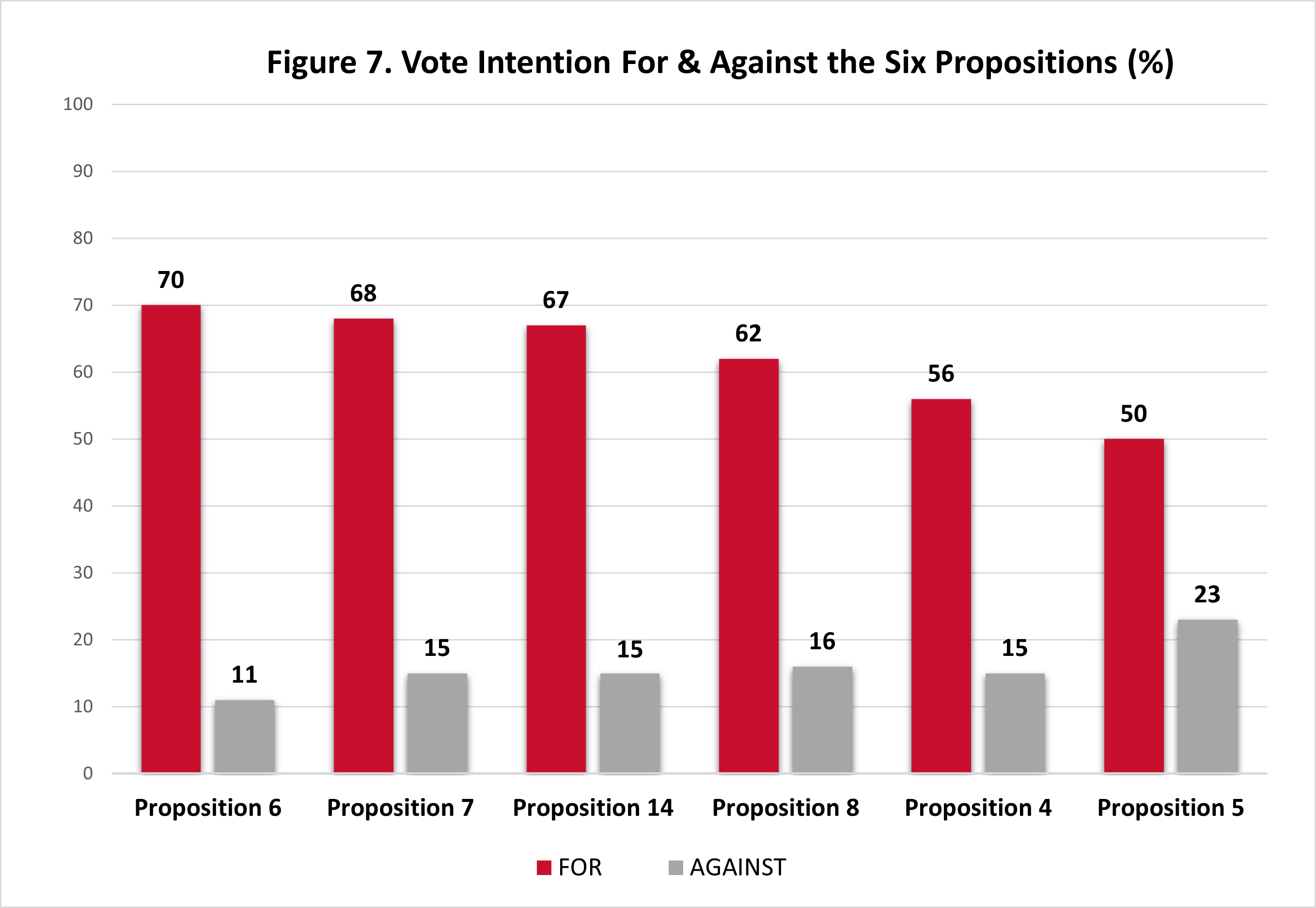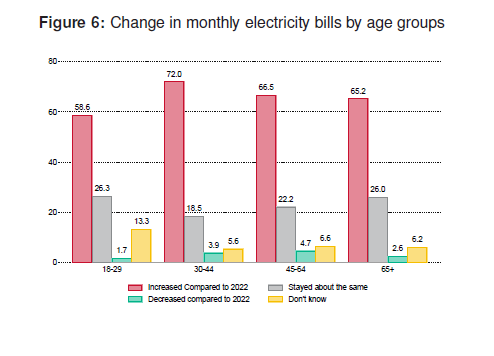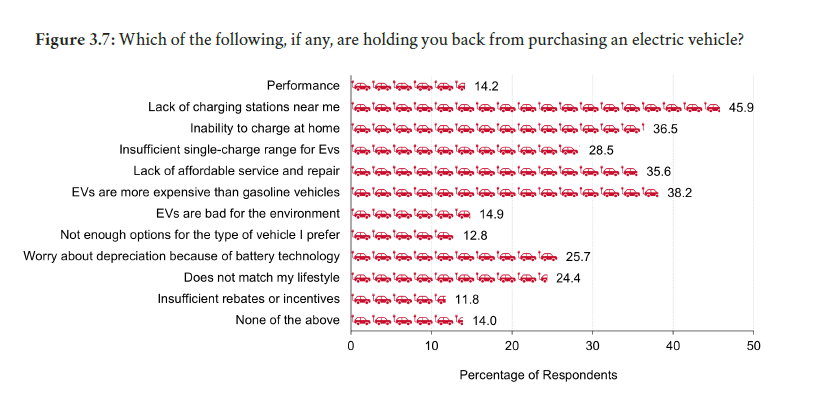2023: UH-TSU Texas Trends Survey
Lieutenant Governor Bill Hobby. Congresswoman Barbara Jordan. Congressman Mickey Leland – three Texas legends who dedicated their lives to serving the Lone Star State.
Their political careers were in full swing in the early 1970s when the Texas population was smaller and less diverse. They had a common goal: to create a better state for everyone.
In the spirit of these Texas political pioneers, the Hobby School of Public Affairs at the University of Houston and the Executive Master of Public Administration Program in the Barbara Jordan – Mickey Leland School of Public Affairs at Texas Southern University launched the Texas Trends Survey, a five-year project to study Texas’s changing population and opinions, in 2021. In addition to a representative sample of all Texans, the surveys will include an oversample of people of color to allow for an objective and statistically valid report of their opinions and experiences. The data from the annual surveys and reports will be shared with policymakers, business and community leaders, academics and the public. With objective data, decision-makers throughout the state will be equipped to determine the best routes leading to a better Texas for everyone.
The 2023 statewide survey was conducted between Oct. 6 and Oct. 18 in English and Spanish with 1,914 YouGov respondents 18 years of age and older, resulting in a confidence interval of +/-2.2. The respondents were matched to a sampling frame on gender, age, race/ethnicity, and education and are representative of likely voters in Texas.
Report One. Texas Trends Survey: State Propositions
The first report of the 2023 Texas Trends survey examines the vote intention of likely Texas voters on six statewide propositions, which if passed will amend the Texas Constitution to either increase state funding for specific activities or reduce the property taxes paid by most Texans. This survey’s sub-population includes 873 respondents who self-identified as likely voters, with a confidence interval of +/-3.3.
At least half of voters said they support all six, and four of the propositions drew support from more than 60% of voters. Other proposed amendments deal with individual jurisdictions, did not involve an ongoing allocation of tax revenue or are more targeted and were not included in the survey.
Highlights
- 56% of likely voters intend to vote for Proposition 4 (Property Tax Relief), which, if passed, will, among other things, increase the residential homestead exemption for school property taxes from $40,000 to $100,000.
- 50% of likely voters intend to vote for Proposition 5 (Texas University Fund). It will provide additional funding for the state’s leading research universities, including the University of Houston, Texas Tech University, Texas State University and the University of North Texas if passed. The University of Texas and Texas A&M already receive substantial support via the Permanent University Fund.
- 70% of likely voters intend to vote for Proposition 6 (Texas Water Fund), which, if passed, will provide funding to finance water projects statewide.
- 68% of likely voters intend to vote for Proposition 7 (Texas Energy Fund), which, if passed, will provide funding for the construction, maintenance and modernization of electric generating facilities that can provide dispatchable power at any time.

- 62% of likely voters intend to vote for Proposition 8 (Broadband Infrastructure Fund), which, if passed, will provide funding to expand high-speed broadband internet access.
- 67% of likely voters intend to vote for Proposition 14 (Centennial Parks Conservation Fund), which, if passed, will provide funding for creating and improving Texas state parks.
Read Report One to learn more about where likely Texas voters stand on approving some of the highest profile proposed amendments to the state constitution, from expanding state parks and high-speed internet access to authorizing property tax relief and financing natural gas electric generating plants.
Media Release, October 23, 2023
Report Two. Texas Trends Survey: School Vouchers
The second report of the 2023 Texas Trends survey asked likely Texas voters about school vouchers and Senate Bill 1. Almost half (49%) of Texans say they support using taxpayer money for vouchers to help low-income parents send their children to private schools, compared to a little more than one-quarter (27%) who oppose vouchers. Researchers found church attendance, partisan identity and the presence of children under 18 still living at home all shaped respondents’ perceptions.
Highlights
- 48% of Texans support providing all parents with tax-funded school vouchers that can be used to pay for their child to attend a private or religious school.
- 41% of Texans support Texas Senate Bill 1 (Educational Savings Accounts), which is presently being considered in the Texas Legislature.
- 60% of Black Texans support vouchers for low-income parents, compared to 48% of white Texans and 47% of Latino Texans.
- 52% of Texans who live in cities support vouchers for low-income parents, compared to 38% of Texans who live in rural areas.
- 57% of Republicans, 45% of Independents and 44% of Democrats support vouchers for low-income parents.

Read Report Two to learn more about where likely Texas voters stand on school voucher legislation while the Texas Legislature is in a special session.
Media Release, October 31, 2023
Report Three. Texas Trends Survey: Primary Elections
The third report of the 2023 Texas Trends survey asked likely Republican primary voters in Texas about their vote intention in the Texas Republican primary election in March 2024 and in a hypothetical two-candidate primary scenario between former U.S. President Donald Trump and Florida Gov. Ron DeSantis.
Researchers found that the former president's support levels among likely Republican primary voters in Texas put him far ahead of his Republican opponents.
Highlights
- 58% of likely Republican primary voters in Texas intend to vote for Donald Trump.
- 14% of likely Republican primary voters in Texas intend to vote for Ron DeSantis.
- 6% of likely Republican primary voters in Texas intend to vote for Nikki Haley.
- The vote intentions for the remaining candidates are in the low single digits, ranging from 3% for Vivek Ramaswamy and Mike Pence to 1% for Asa Hutchinson and Ryan Binkley.

- 9% of likely Republican primary voters in Texas are unsure of how they intend to vote.
- In a hypothetical two-candidate race between Donald Trump and Ron DeSantis, Trump’s vote intention is 66% while DeSantis’s is 25%.
Will Hurd dropped out of the race midway through the fielding of the poll, while Larry Elder and Mike Pence dropped out after the fieldwork for the survey had been completed.
Read Report Three to learn more about the vote intention of likely Republican primary votes, including a breakdown of demographics, educational attainment, church attendance and ideological orientation.
Report Four. Texas Trends Survey: Impact of Summer Heat Wave
The fourth report of the 2023 Texas Trends survey asked Texans about the impact of the summer heat wave, the measures they took to reduce energy usage and protect their homes and future concerns about extreme heat. Researchers found Texans overwhelmingly found the summer of 2023 to be hot, extremely hot, and very hot. Texans said the intense heat waves this summer impacted their monthly electricity bills.
Highlights
- About three-quarters (75.8%) of Texans describe the summer of 2023 as hotter than previous summers, with only one-fifth (20.5%) saying it was about the same.
- Texans older than 65 were the most likely to say the summer was hotter than previous ones, while those 18 to 29 were least likely.
- The most common measure Texans took to reduce energy usage this summer was turning off the lights when not in use (74.9% of respondents).

- 40.2% of Texans reported raising their thermostats by a degree or several degrees, and 38.8% said they used energy-efficient light bulbs.
- More than one-fifth of respondents (22.2%) said they bought additional fans.
- 31.3% of respondents reported being affected by droughts, and 28.7% said that droughts had affected people they know.
- 19.3% of respondents and 32.6% of people they know experienced health effects related to the heat.
- 41.6% of respondents said they see more worry in their communities about weather growing more extreme.
Read Report Four to learn more about where Texans stand on the heat wave of summer 2023 and extreme weather, including a breakdown of areas and demographics.
Media Release, November 9, 2023
Report Five. Texas Trends Survey: Climate Change
The fifth report of the 2023 Texas Trends survey asked Texans about climate change, from their perceptions of its role in extreme weather events and who is responsible for it to the actions they are taking to cope with its effects. Researchers found that more than half of Texans believe climate change significantly impacts extreme weather events.
Highlights:
- More than half of Texans (51%) believe climate change significantly impacts extreme weather events.
- Nearly three-fifths (58%) of those personally affected by extreme weather believe in climate change’s significant role, while only 44% of those who haven’t experienced such events share this belief.

- While 51.9% of Generation Z think the oil and gas industry is very responsible, only 21.1% of the Silent Generation believe it is very responsible.
- 73.4% of Democrats acknowledge climate change’s major role in extreme weather events, while 30.6% of Republicans acknowledge climate change’s major role in extreme weather events.
- Over 35% of Texans consider the meat and dairy sector highly responsible for climate change.
- Over 20% of Texans consider the coal industry highly responsible for climate change, while 33% don’t hold it responsible.
- Nearly 20% of Texans consider the oil and gas sector highly responsible for climate change, while 41.6% don’t hold it responsible.
- However, 65% of Texans who attribute extreme weather to climate change hold the oil and gas industry very responsible.
- About 47% of those who acknowledge the impact of climate change on weather are likely to consider buying an electric vehicle.
Read Report Five to learn more about where Texans stand on climate change and extreme weather, including a breakdown of their opinions based on partisanship and demographics.
Media Release, November 16, 2023
Report Six. Texas Trends Survey. Electric Vehicle Adoption
This sixth and final report in the Texas Trends series examines why Texans choose to purchase or lease an electric vehicle and explores the conditions in which Texans would be more likely to buy a gasoline-powered vehicle than an electric-powered one.
Highlights
- Only 5.1% of Texans said they owned an electric-powered vehicle.
- Among Texans who own or lease an electric vehicle, the majority (56.6%) considered performance as the most significant attribute when purchasing or leasing an electric vehicle, followed by charging capabilities (40.5%) and cost compared to gasoline-powered vehicles (39%).
- Of the 94.9% of respondents who did not currently own or lease an electric vehicle, 59.5% were not too likely or not at all likely to consider leasing or purchasing an electric vehicle in the future.
- Texans said the lack of charging stations near them (45.9%), price compared to gasoline-powered vehicles (38.2%), inability to charge at their home (36.5%) and service and repair affordability (35.6%) were the top reasons holding them back from purchasing an electric vehicle.

- Asian (7.5%) and Black (6.1%) respondents had the highest percentages of electric vehicle ownership compared to other races and ethnicities.
- Millennials are the largest cohort to own or lease electric vehicles (10.1%), followed by Gen Z (9.4%).
Read Report Six to learn more about where Texans stand on owning and leasing electric vehicles and the likelihood of purchasing one in the future, including a breakdown of their opinions and experiences based on demographics and partisanship.
Media Release, November 30, 2023